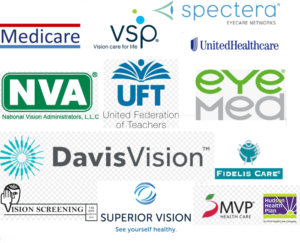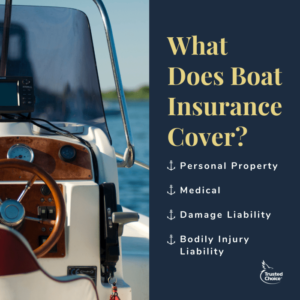
Vision insurance for seniors is crucial in ensuring that older adults maintain their eye health and quality of life. As we age, our eyesight can deteriorate, leading to various vision problems that may require regular check-ups and treatments. With the rising costs of eye care, having the right vision insurance can make a significant difference, alleviating financial burdens and making essential services more accessible.
Many seniors face common issues such as cataracts, glaucoma, and macular degeneration, which can be expensive to treat without adequate insurance. With statistics showing that eye care costs can be overwhelming, understanding the available vision insurance options is vital for informed decision-making.
Overview of Vision Insurance for Seniors
Vision insurance for seniors plays a crucial role in maintaining overall health, especially as age-related vision problems become more prevalent. This type of insurance helps cover the costs associated with eye exams, glasses, contact lenses, and treatments for various visual impairments. As seniors often face higher risks of eye diseases, having proper insurance can alleviate financial burdens and ensure they receive timely care.Common vision problems faced by seniors include cataracts, glaucoma, macular degeneration, and diabetic retinopathy.
These conditions not only impair eyesight but can also lead to more severe health issues if left untreated. Vision insurance serves as a valuable resource, providing coverage for routine eye exams and necessary treatments, thereby enhancing the quality of life for seniors.
Statistics on Eye Care Costs for Seniors
Understanding the financial implications of eye care for the elderly underscores the importance of vision insurance. In the United States, the average annual cost of eye care for seniors is significantly higher than that of other age groups. Here are some statistics to consider:
- The average senior spends approximately $400 annually on eye care services, which can increase with the need for specialized treatments.
- Over 50% of older adults suffer from a visual impairment, making regular eye examinations essential for early detection and management.
- The cost of cataract surgery, which is common among seniors, can range from $3,000 to $5,000 per eye without insurance coverage.
- Research indicates that untreated vision problems can lead to higher healthcare costs, including increased hospital admissions due to falls or accidents resulting from impaired vision.
“Investing in vision insurance not only safeguards against high out-of-pocket expenses but also promotes timely and necessary eye care, enhancing overall health outcomes for seniors.”
Types of Vision Insurance Plans Available

When it comes to securing vision insurance, seniors have several options tailored to their unique needs. Understanding the various types of plans available can significantly impact their eye care choices and financial planning. Each plan offers distinct features, benefits, and drawbacks that are essential to consider for effective decision-making.
Types of Vision Insurance Plans
Vision insurance for seniors typically falls into a few main categories. Each type has its own merits and potential downsides, which can influence a senior’s choice based on their specific health requirements and financial situation. Here’s a breakdown of the most common vision insurance plans:
- Vision Discount Plans: These plans offer discounted rates on eye care services and products rather than traditional insurance coverage. While they often have lower monthly premiums, they require members to pay out-of-pocket for most services and may not cover routine exams or specific procedures.
- Vision Health Maintenance Organization (VHMO): VHMO plans usually require members to choose a primary eye care provider. They often cover routine exams and services but restrict coverage to a network of providers. The drawback is that going outside the network can lead to higher out-of-pocket costs.
- Vision Preferred Provider Organization (VPPO): These plans allow seniors flexibility in choosing their eye care providers, including out-of-network options at a higher cost. This flexibility can be beneficial for those who have preferred doctors. However, premiums might be higher compared to VHMO plans.
- Integrated Health Plans: Some health insurance plans include vision coverage within a broader health policy. This can be convenient as it consolidates medical and vision care under one policy. On the downside, the vision coverage might not be as comprehensive as standalone plans.
It’s crucial for seniors to evaluate their personal eye care needs and financial situations when considering these options. For example, a senior who frequently visits an eye doctor may benefit from a VHMO plan, ensuring regular access to care at predictable costs. Conversely, those who prefer greater choice and flexibility might lean towards a VPPO plan.
Popular Vision Insurance Providers for Seniors
Several vision insurance providers have established themselves as leaders in catering to the needs of seniors. These companies offer diverse plans that can suit various preferences and budgets. Here are some of the notable providers:
- VSP (Vision Service Plan): Known for its extensive network of providers and comprehensive coverage options, VSP is a popular choice among seniors looking for quality vision care.
- EyeMed: EyeMed offers both traditional and discount plans, providing flexible options that include a wide range of eye care services and eyewear.
- Davis Vision: This provider is recognized for its customizable plans, allowing seniors to select the coverage that best fits their vision needs.
- Humana Vision: Humana’s plans often come bundled with other health services, making it convenient for seniors who prefer an integrated approach to their healthcare.
Consideration of the specific offerings and limitations of these providers can help seniors make informed choices that align with their eye care needs. By carefully evaluating the types of vision insurance available and the providers that offer them, seniors can secure effective coverage that enhances their overall health and well-being.
Related Insurance Types for Seniors

Seniors often face unique challenges when it comes to health and safety, making it essential to consider additional insurance types that complement existing coverage. Understanding these related insurance types can help seniors navigate potential expenses and ensure they have the necessary protection in place.
Significance of Supplemental Insurance
Supplemental insurance plays a crucial role in covering health expenses that primary insurance may not fully address. Many seniors experience out-of-pocket costs that can accumulate quickly, especially with rising healthcare prices. This type of insurance can offer coverage for services like dental, vision, or even long-term care, thus alleviating financial stress.
Supplemental insurance fills the gaps left by primary insurance, providing financial relief during unexpected health crises.
Benefits of Travel Insurance
Travel insurance is particularly beneficial for seniors planning trips, as it covers various unexpected events that might occur during travel. This includes trip cancellations, lost luggage, and importantly, health-related emergencies. Given that seniors may have pre-existing health conditions, having travel insurance ensures that they receive the necessary medical care abroad without incurring exorbitant costs.
Travel insurance safeguards against unforeseen issues while traveling, offering peace of mind for seniors on the go.
Essentials of Umbrella Insurance
Umbrella insurance provides extra liability protection beyond what standard policies cover, making it an essential addition for seniors, especially those with significant assets. This insurance kicks in when medical expenses from accidents exceed the limits of home or auto insurance. It offers a safeguard against lawsuits, ensuring that seniors can enjoy their retirement without the fear of losing their hard-earned savings.
Umbrella insurance acts as a safety net, protecting seniors from significant financial losses due to liability claims.
Importance of Pet Insurance
For seniors who have pets, pet insurance is an important consideration. It provides coverage for veterinary expenses, which can add up significantly over time. Given the emotional and companionship benefits pets provide, this insurance helps ensure that seniors can afford necessary treatments for their animals without financial strain. Coverage options typically include routine care, emergency treatment, and even preventive services.
Pet insurance ensures that seniors can provide for their furry companions, easing the burden of unexpected veterinary costs.
Watercraft Insurance for Seniors
Seniors who own boats or other watercraft may benefit greatly from watercraft insurance. This type of insurance provides coverage for damage to the watercraft, as well as liability for injuries or damages caused while using the vessel. Considering the recreational nature of boating, having this insurance allows seniors to enjoy their time on the water with peace of mind. Coverage can include collision, comprehensive, and personal property protection.
Watercraft insurance protects seniors’ investments in recreational activities while providing liability coverage for safe enjoyment on the water.
Last Word
In summary, investing in vision insurance for seniors is not just a financial decision; it’s an investment in health and well-being. By exploring various plans and understanding the specific needs of seniors, families can ensure their loved ones receive the necessary care. Proper vision coverage ultimately enhances their quality of life, enabling them to enjoy their golden years with clarity and confidence.
FAQs
What is vision insurance for seniors?
Vision insurance for seniors helps cover the costs of eye care, including exams, glasses, and treatments, specifically designed for older adults.
How do I choose the right vision insurance plan?
Consider factors like coverage options, premiums, out-of-pocket costs, and the network of eye care providers when selecting a plan.
Are all vision insurance plans the same?
No, different plans offer varying levels of coverage, benefits, and provider networks, so it’s essential to compare them based on your specific needs.
Can vision insurance cover surgery for eye conditions?
Many plans do cover certain surgeries, such as cataract surgery, but it’s important to check the specific policy details.
Is there a waiting period for vision insurance benefits?
Some plans may have waiting periods before certain benefits become available, so reviewing the terms of the policy beforehand is advisable.





